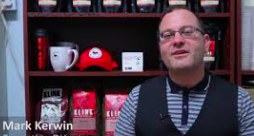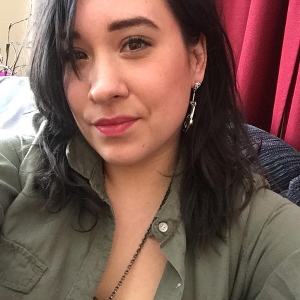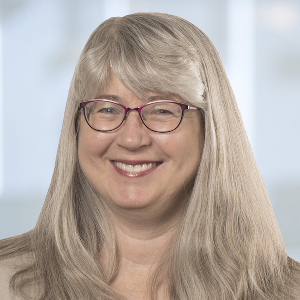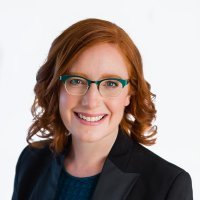 A few years ago, Mark Kerwin bought coffee beans at Klink Coffee. Once back home, he made himself a cup of coffee, a great cup of coffee! It tasted so good that he took his phone and tweeted about it. His tweet reached Klink Coffee, who at the time was actively searching for a business development manager. They contacted Mark and offered him the position.
A few years ago, Mark Kerwin bought coffee beans at Klink Coffee. Once back home, he made himself a cup of coffee, a great cup of coffee! It tasted so good that he took his phone and tweeted about it. His tweet reached Klink Coffee, who at the time was actively searching for a business development manager. They contacted Mark and offered him the position.
That offer came at the right time. Mark had recently been diagnosed with type 1 diabetes. The unfortunate discovery was devastating for him, but there was a silver lightning. It somehow helped him figure out what was important to him, what he really wanted to do with his life. One thing was clear: working in supply chain management for a private company as he was doing at the time, wasn’t it!
Mark became Klink’s new business development manager! He soon would become the Executive Director of the social enterprise.
From the moment Mark joined Klink Coffee, he strived not only to provide employment opportunities for people with barriers to employment, but to also provide them with a supportive working environment where they can emancipate.
Mark positions Klink Coffee at the intersection of social enterprise, the coffee industry and the correctional system.
And this is where this good news story takes a twist. At the time I met Mark, Klink Coffee had come to the difficult decision to end operations. Mark is a resilient individual. Resilience is one of his strongest value, which he tries to transmit to the people he has hired: individuals struggling to re-enter society after serving jail sentences.
Just like Mark and the people he hired, social enterprise needs to be resilient. And part of being resilient is looking at what lessons can be learned when the story takes a turn like this.
How Klink Coffee brewed hope
Klink Coffee provided more than jobs: it gave people a future, it gave them hope. After all, work is a major part of one’s life and socialization, it answers a basic need of belonging. Community is everything and Klink Coffee was at time the only community people coming out of jail had.
To fulfil their mission, Klink Coffee was able to rely on a vast network of social enterprises, non-profits and governmental agencies. Mark fostered great relations and partnerships within this ecosystem with United Way, the Social Purchasing Project, Beanwise, Furniture Bank, the federal, provincial and municipal governments. Klink Coffee is a Buy Social Canada (BSC) certified social enterprise. Mark mentioned that the certification provided them with notoriety and legitimacy among the social enterprise ecosystem by helping people to purchase from enterprise that shared their values.
Klink Coffee also benefited from the support of the community in the form of donations and volunteers, a lot of whom are former employees who transited through Klink Coffee as a way of giving back to the social enterprise for changing their lives.
One former employee reported to Mark that her quality of live significantly improved when she started working at Klink Coffee. She acquired business capacity, developed social skills and boosted her self-confidence. She also gained independence through her new source of income and the apartment she was able to get through a recommendation from her employer. Eventually, she put the business and social skills she gained to good use by starting her own business.
Lessons Learned
In hindsight, Mark thinks that access to loans and grants, taking into consideration the specific needs of the social enterprise sector, would have helped them to sustain. Increased access to business development and financial capacity for social enterprises would have been beneficial as well.
Mark had in mind something like a bootcamp for social enterprise executive directors that would constitute a con
crete and effective way to acquire much needed knowledge and skills.
Lastly, despite a vast and strong ecosystem, it is Mark’s perception that that governments, agencies and intermediaries still work in silos, making it difficult for enterprises like his to get support in a timely manner and ensuring their sustainability.
For the individuals who benefited from Klink Coffee, the closure means the lost of a social enterprise that provides a supportive work environment for people who need it the most. More than a simple transition to the economy, Klink helps people to become responsible community members, providing their employees with more than just business skills, but also a community, hope, and most importantly a sense of belonging.
The path forward
For the community at large, the end of Klink Coffee means one less opportunity to raise awareness on social enterprises and their positive impact on marginalized individuals. But Klink Coffee, and Mark’s work, show us a pathway to growing our compassion for people coming out of the criminal justice system and striving to understand their realities, their stories, their lives. A pathway to becoming better community members leading the way to a more inclusive economy — just like Klink Coffee did.
Biography of the author
Alexandre Applin
 Social Enterprise Ecosystem Evaluation Manager
Social Enterprise Ecosystem Evaluation Manager
Alexandre Applin joined CCEDNet team in May 2017 as Evaluation Manager for the Social Enterprise Ecosystem Project. Alexandre is particularly interested in socioeconomic development as a means to design sustainable communities reflecting local aspirations and needs of its members.
For more than 10 years, Alexandre has worked for international NGOs, multilateral organizations and community-based organizations on both international and national projects. He has gained extensive expertise in the design of evaluation systems and in the development of impactful methodologies and tools. Alexandre also has strong competencies in knowledge management and organizational capacity building.
Alexandre holds a Master in International Studies from University of Montreal and a Certificate in Monitoring and Evaluation of Public Programs from l’École Nationale d’Administration Publique (ENAP).
*The opinions expressed in blog posts are those of the author(s) and do not necessarily reflect the position of CCEDNet




 Angie
Angie 

 Following the announcement of the
Following the announcement of the 


 Jack Quarter, a beloved partner, father, uncle, friend, teacher and mentor, died at home on Wednesday, February 6, 2019, aged 77. Jack will be remembered for his kindness, thoughtfulness and sense of humour, as well as for his integrity and dedication to his academic pursuits, his students and colleagues. He will be sorely missed by Dale Willows, his partner of 33 years; his son, David; brother, Bob; niece, Emma; nephew, Paul; cousins, Marvin Weintraub, Rita Moskovitz (Larry), Doreen Sobel (Harvey, deceased), and their children and grandchildren; his extended family including Kevin Willows, Dennis Willows, Donna, Ernie, Cass, Clay, Michael Reimer, Iassen Reimer Pelev and Nasco Pelev; as well as several much-cherished lifelong friends. Sadly, Jack was predeceased by his daughter Zoey.
Jack Quarter, a beloved partner, father, uncle, friend, teacher and mentor, died at home on Wednesday, February 6, 2019, aged 77. Jack will be remembered for his kindness, thoughtfulness and sense of humour, as well as for his integrity and dedication to his academic pursuits, his students and colleagues. He will be sorely missed by Dale Willows, his partner of 33 years; his son, David; brother, Bob; niece, Emma; nephew, Paul; cousins, Marvin Weintraub, Rita Moskovitz (Larry), Doreen Sobel (Harvey, deceased), and their children and grandchildren; his extended family including Kevin Willows, Dennis Willows, Donna, Ernie, Cass, Clay, Michael Reimer, Iassen Reimer Pelev and Nasco Pelev; as well as several much-cherished lifelong friends. Sadly, Jack was predeceased by his daughter Zoey. In November, after Jack had been diagnosed with terminal stomach cancer, upon request he “knocked off” a brief autobiography in his own inimitable style that is now the center-piece of a website launched to honour Jack’s life.
In November, after Jack had been diagnosed with terminal stomach cancer, upon request he “knocked off” a brief autobiography in his own inimitable style that is now the center-piece of a website launched to honour Jack’s life. Calling Canada’s Amazing Social Entrepreneurs: Applications Open for the $100,000 Social EnterPrize
Calling Canada’s Amazing Social Entrepreneurs: Applications Open for the $100,000 Social EnterPrize  Interested in exploring the development of an employment social enterprise idea? Biannually, TEF runs the ESE Idea Accelerator program, which supports individuals and organizations in developing early-stage employment social enterprise ideas. The accelerators provides four experiential workshops, which support participants to strengthen both business and social aspects of their ESE idea. The Accelerator program culminates in a pitch competition, during which participants will have the chance to pitch for $5,000 to $10,000 ‘Catalyzing Grant’ to conduct a feasibility study and develop a business plan for their ESE idea.
Interested in exploring the development of an employment social enterprise idea? Biannually, TEF runs the ESE Idea Accelerator program, which supports individuals and organizations in developing early-stage employment social enterprise ideas. The accelerators provides four experiential workshops, which support participants to strengthen both business and social aspects of their ESE idea. The Accelerator program culminates in a pitch competition, during which participants will have the chance to pitch for $5,000 to $10,000 ‘Catalyzing Grant’ to conduct a feasibility study and develop a business plan for their ESE idea.







 Yvon Poirier has a long history of involvement in the labour and social movements in Québec and Canada. He was founding President of the
Yvon Poirier has a long history of involvement in the labour and social movements in Québec and Canada. He was founding President of the